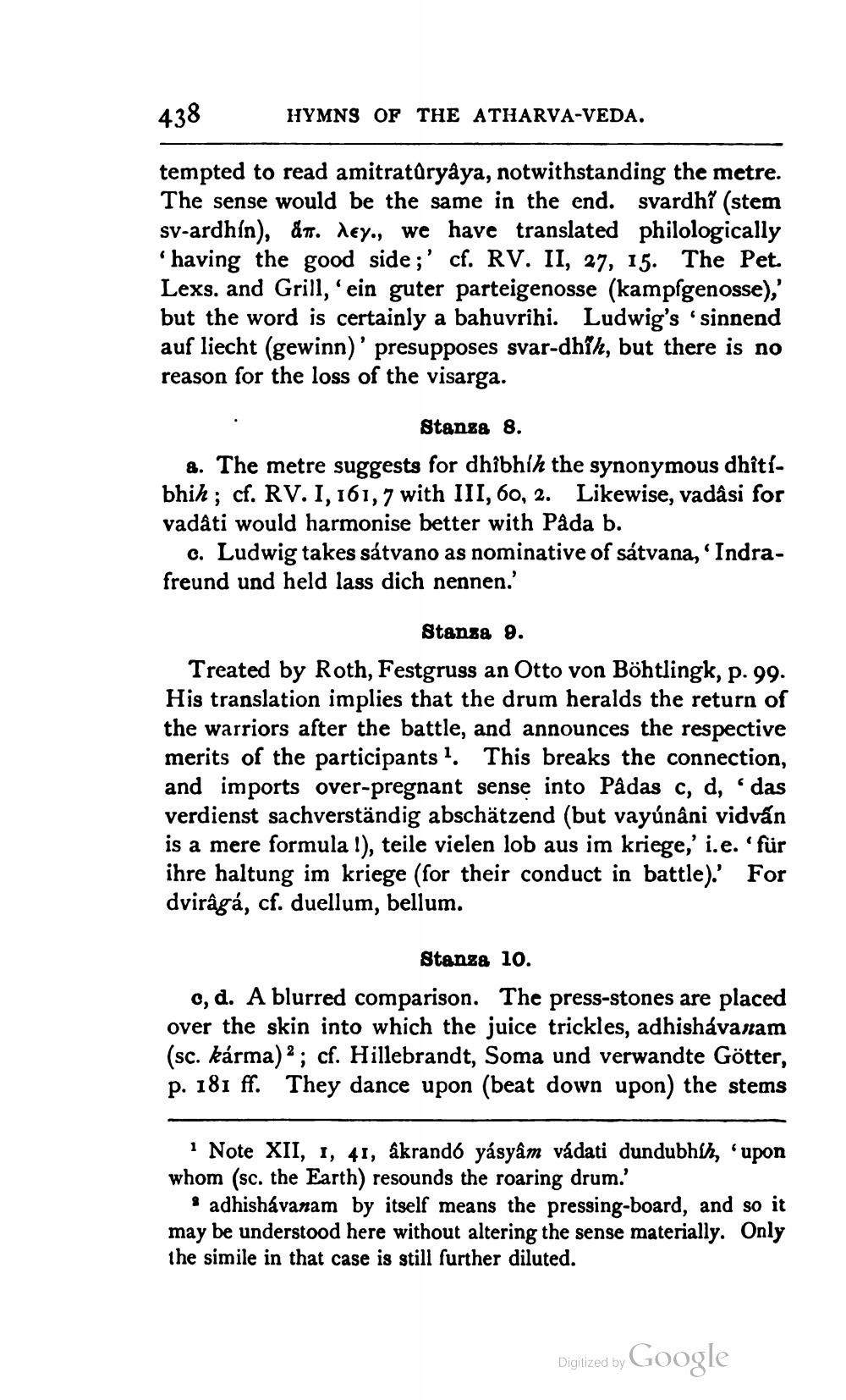________________
438
HYMNS OF THE ATHARVA-VEDA.
tempted to read amitraturyâya, notwithstanding the metre. The sense would be the same in the end. svardhi (stem sv-ardhín), dr. dey., we have translated philologically 'having the good side;' cf. RV. II, 27, 15. The Pet. Lexs. and Grill, ein guter parteigenosse (kampfgenosse),' but the word is certainly a bahuvrihi. Ludwig's 'sinnend auf liecht (gewinn)' presupposes svar-dhih, but there is no reason for the loss of the visarga.
Stanza 8. 8. The metre suggests for dhibhíh the synonymous dhitibhih; cf. RV. I, 161, 7 with III, 60, 2. Likewise, vadási for vadåti would harmonise better with Påda b.
c. Ludwig takes sátvano as nominative of sátvana, ‘Indrafreund und held lass dich nennen.'
Stansa 9. Treated by Roth, Festgruss an Otto von Böhtlingk, p. 99. His translation implies that the drum heralds the return of the warriors after the battle, and announces the respective merits of the participants. This breaks the connection, and imports over-pregnant sense into Padas c, d, das verdienst sachverständig abschätzend (but vayúnâni vidvấn is a mere formula I), teile vielen lob aus im kriege,' i.e. 'für ihre haltung im kriege (for their conduct in battle). For dvirágá, cf. duellum, bellum.
Stanza 10. 0, d. A blurred comparison. The press-stones are placed over the skin into which the juice trickles, adhishávanam (sc. kárma) ? ; cf. Hillebrandt, Soma und verwandte Götter, p. 181 ff. They dance upon (beat down upon) the stems
· Note XII, 1, 41, åkrandó yásyâm vádati dundubhih, upon whom (sc. the Earth) resounds the roaring drum.'
adhishávanam by itself means the pressing-board, and so it may be understood here without altering the sense materially. Only the simile in that case is still further diluted.
Digized by Google




